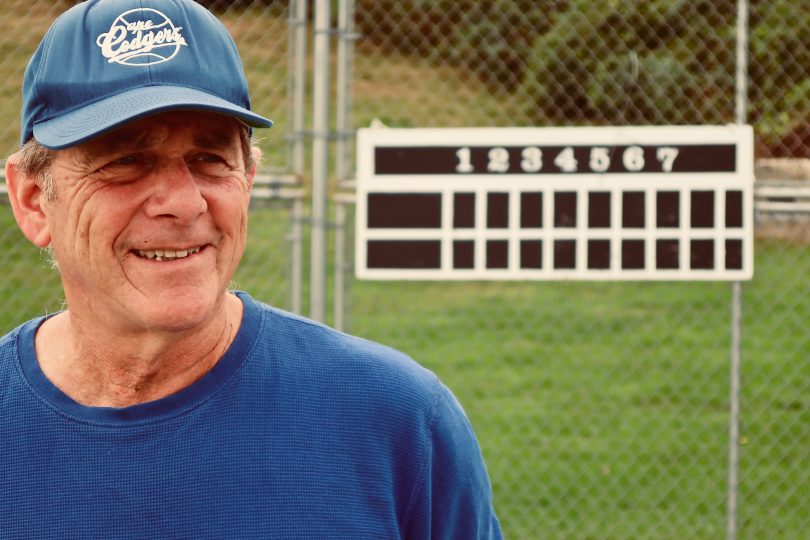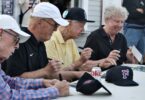FALMOUTH – The first time Barry Beder was brought in to work as a sports psychology consultant with the Boston Red Sox, “I was told, ‘You can’t tell anybody,’ And I was told, ‘Dress like a fan,’ whatever that means,” said Beder. It was so hush-hush that Beder – now 70 years old, retired and…
You may also like
ArtsCape: Weavers Tell Stories in ‘2nd Chances’ at Highfield
A Magical Snowy New Year’s Morning at the Chatham Beach Shack – Slide Show
Cape Cod Wave Photos of 2025 – VIDEO
Long Pasture Wildlife Sanctuary At Dusk, Barnstable – Slide Show
“Making dreams come true at Mark’s Music”: Mark Filteau, A Profile
Dangerous Waves & Land Surfing at the Oldtimers Longboard Surfing Classic – VIDEO
Wellfleet Porchfest 2025, Mashup -Music VIDEO
Frozen Out: As ICE Acts on Cape Cod, Locals React
Crooked Coast at Coast-Fest: “Juju” + “Mallory & Mickey” – Music VIDEO(S)
Coast-Fest Mashup – Music VIDEO
How To Move A 10-Foot Bunny From Route 6A to Cotuit
Strong start for Woods Hole festival — Play It Again, Tim
Four Sportswriters, Boston’s Mount Rushmore, Go To A Cape League Game: SLIDE SHOW + Essay
Foggy Evening in Woods Hole – Slide Show
Sarah Burrill: “Rise Above” at the CC Women’s Music Festival – Music VIDEO
ArtsCape: Please Touch (the Art!) at Cotuit
Harvest Days: Remembering Michael Pearson’s Harvest Gallery Wine Bar
The Grab Brothers Make Hippie Happy Music – A Profile
Spontaneous Collaboration: Jackie Reeves and Lauren Wolk’s InkLine Project
Smoke Stack lightning: ‘Sinners’ sizzles – Play It Again, Tim
Spies play cat-and-mouse in ‘Black Bag’ – Play It Again, Tim
RIP Bruce Maclean – “the last old-time freak”
A suggested Hackman fest, an Oscar recap and a tardy review – Play It Again, Tim
Ho-hum, Oscar night at last–Play It Again, Tim
The “Functional Art” of Walter Baron, Boatbuilder – A Profile
‘Wolf Man’: Toxic masculinity strikes again – Play It Again, Tim
Singer a simian sensation in ‘Better Man’ – Play It Again, Tim
‘Bikeriders,’ ‘Beast’ best of the best for 2024 – Play It Again, Tim
Catching up during awards season; Play It Again, Tim
Follow The Money, and The Good Vibe; Why Shop Local – An Essay
About the author
Brian Tarcy
Brian Tarcy is co-founder of Cape Cod Wave. He is a longtime journalist who has written for the Boston Globe, Boston magazine, the Cape Cod Times and several other publications. He is the author of "YOU CAN'T SELL RIGHT FIELD; A Cape Cod Novel." He is also the author or co-author of more than a dozen mostly non-fiction books, including books with celebrity athletes Cam Neely, Tom Glavine and Joe Theisman. His previous book was, "ALMOST: 12 Electric Months Chasing A Silicon Valley Dream" with Hap Klopp,who created the iconic brand, The North Face.
For more information, see Briantarcy.com
Brian is a long-suffering Cleveland Browns fan with a long-running NFL predictions/political satire column connecting weekly world events to the fate of his favorite team, now at Whatsgonnahappen.com.































